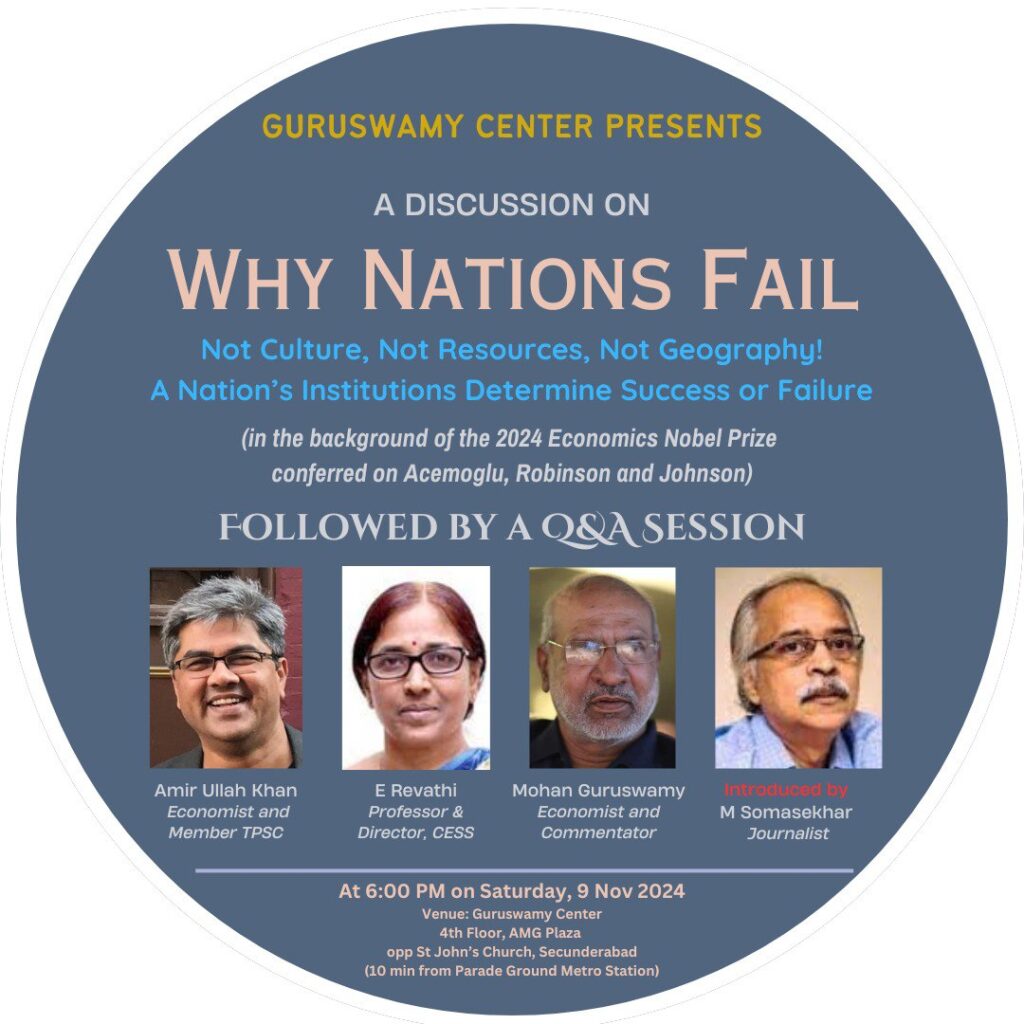
Hyderabad: The topic ‘Why Nations Fail’ has aroused lot of interest in the past month. The topmost being the award of the 2024 Nobel Prize for Economic Sciences to 3 laureates who collectively did a monumental work and published a book with the same topic.
Daron Acemoglu, Simon Johnson and James Robinson, all three from the US shared the coveted prize for their studies of how Institutions are formed and affect prosperity of nations. They have demonstrated the importance of societal institutions for a country’s prosperity.
Given the crisis and challenges faced by several nations, including India on the economic and political fronts the subject is gaining importance. Societies with a poor rule of law and institutions that exploit the population do not generate growth or change for the better. The laureates’ research helps us understand why, the Nobel Committee said in its statement announcing the award in October.
Acemoglu, Johnson and Robinson have provided an explanation for why some countries are rich and others are poor. “Reducing the vast differences in income between countries is one of our time’s greatest challenges. The laureates have demonstrated the importance of societal institutions for achieving this” said Jakob Svensson, Chair of the Committee for the Prize in Economic Sciences.
Therefore, it’s not the Culture, the Resources nor the Geography but perhaps a Nation’s Institutions that determine success or failure. There have been strong reasoning on how climate and geography contributed to the success or decline of a nation or civilisation. To discuss and throw light on the various aspects of the subject a panel discussion is being organised on the subject by the Guruswamy Centre on November 9 in Secunderabad.

The discussion will be led by Mohan Guruswamy a well known policy analyst, columnist and expert on security and economic issues. He feels that “Why Nation’s Fail is a hugely researched study, and a truly educative book that takes you all over the world in its examination of why some countries prospered and others did not. This is the sort of book that must be made required reading for anyone who aspires to shape, mould or lead this nation, or even serve it in more mundane ways.”
The Director of the Centre for Economic and Social Studies (CESS) and noted economist Dr E Revathi will present her views on the topic. Established in 1980, CESS has been recognised as a national institution. The autonomous institution is playing an important role in conducting interdisciplinary research in analytical and applied areas of social sciences, development issues and regional disparities in economics.
The discussion will also feature development economist Amir Ullah Khan, who has been actively involved with several national and International Institutions-World Bank, Bill and Melinda Gates Foundation, India Development Fund, NALSAR, ISB and TISS. At present he is a member of the Telangana Public Service Commission.
Why Nations Fail: The Origins of power, prosperity and poverty was first published in 2012 by the Nobel Laureates of 2024. It offers several well research stories and case studies from countries across the world to buttress their theory of the success or failure of Nations over the centuries.



